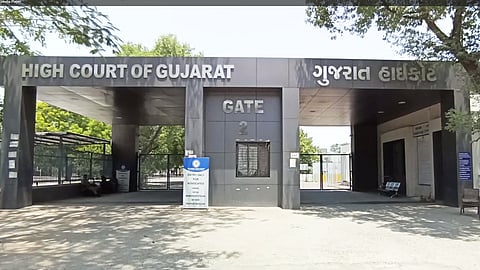Treat anganwadi workers-helpers at par with permanent civil employees: Gujarat HC to state, Centre
AHMEDABAD: In a significant judgment that will benefit lakhs of anganwadi workers and helpers across the country, the Gujarat High Court has directed the state and Union governments to treat them at par with regularly selected permanent employees holding civil posts.
Observing that the discrimination of AWWs (anganwadi workers) and AWHs (anganwadi helpers) with respect to government employees "is writ large", the court of Justice Nikhil S Kariel directed the state and Central governments to jointly formulate a policy for absorption of the posts of AWWs and AWHs in government service and to confer them consequential benefit of regularisation.
The court passed its judgment on a batch of petitions filed by AWWs and AWHs appointed under the Centre's Integrated Child Development Services (ICDS) scheme between 1983 and 2010.
The IDCS scheme envisaged creation of 'anganwadi centres' to be run by AWWs and AWHs for children below the age of six as well as pregnant women and lactating mothers.
Despite having worked for more than 10 years, and more than six hours a day, they were given a paltry sum as honorarium without getting any benefit whatsoever as employees of the state government, their plea said.
They sought the court's direction for their "rightful due".
The petitioners said while they were recruited through a regular process, they were treated as working under a scheme and not as government servants.
"Insofar as the aspect of discrimination is concerned, it would appear to this court that discrimination of AWWs and AWHs vis-a-vis government employees, is writ large on the face of the functions, duties and responsibilities of the AWWs and AWHs as compared to the emoluments paid to the AWWs and AWHs," the court said in its judgement uploaded on its website on October 30.
Comparing the duties of AWWs and AWHs with a monthly honorarium of Rs 10,000 and Rs 5,000 being paid to them, respectively, it was clear the state government was discriminating against them when compared to the employees working in civil posts, the court observed.
The aspect of discrimination would have to be considered from the larger perspective of functions, duties and responsibilities of the AWWs and AWHs compared to a person occupying a civil post with the government, the court said.
The responsibility of AWWs and AWHs are onerous, and yet they are paid a meagre honorarium, and are not entitled to any other attendant benefits which a regular employee holding a civil post in the state is entitled to, the court said.
"The state government has relegated the AWWs and AWHs to even below the category of a temporary Class-IV, who is entitled to a minimum pay scale of Rs 15,000.
But for unequal bargaining positions and the need to sustain oneself and their family, as the case may be, no self-respecting human being would be willing to work on emolument less than the minimum wages, that too when the ultimate employer is the state," it said.
The court then directed the state and Union governments to declare that AWWs and AWHs will be entitled to be treated at par with regularly selected permanent employees holding civil posts.
The HC also directed the state and Central governments to jointly formulate a policy within six months from the date the judgment is made available on the Gujarat High Court portal for absorption of the posts AWWs and AWHs in government service and to confer consequential benefit of regularisation.
The policy formulated by the governments should address the aspects of the classes in which two posts would be absorbed, their pay scale, and the cut off date from which they are entitled for arrears, it said.
In the case of the petitioners, the cut off date shall not be less than a period of three years preceding the date of filing of the petitions, the court ordered.
"Furthermore, the petitioner AWWs shall be paid salary in the minimum of pay scale as available to Class-III posts, and AWHs shall be paid salary in the minimum of pay scale as available to Class-IV posts till the time the governments complete the exercise of formulating the policy," it added.

